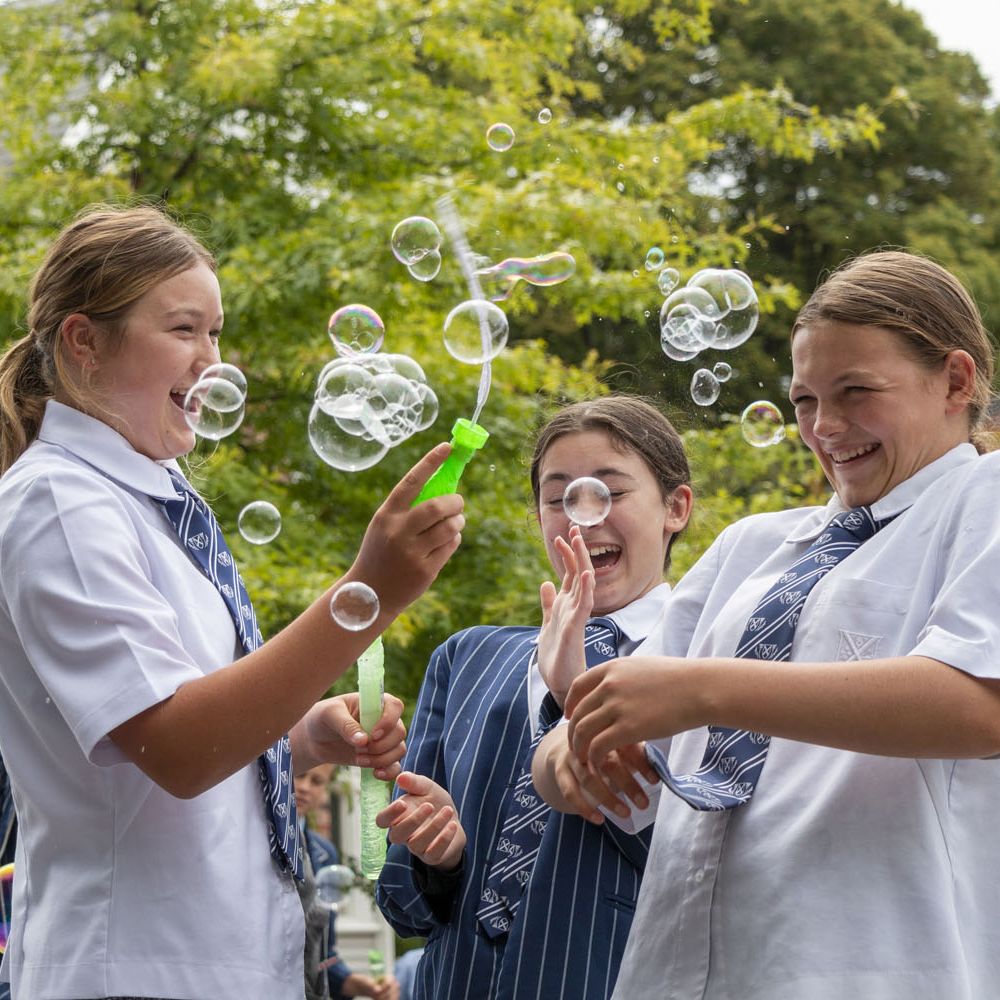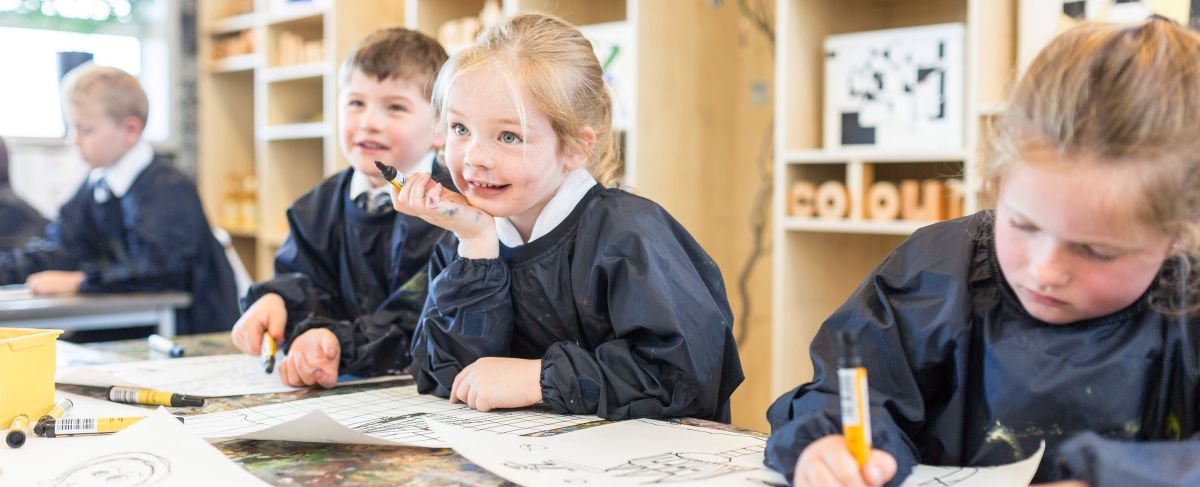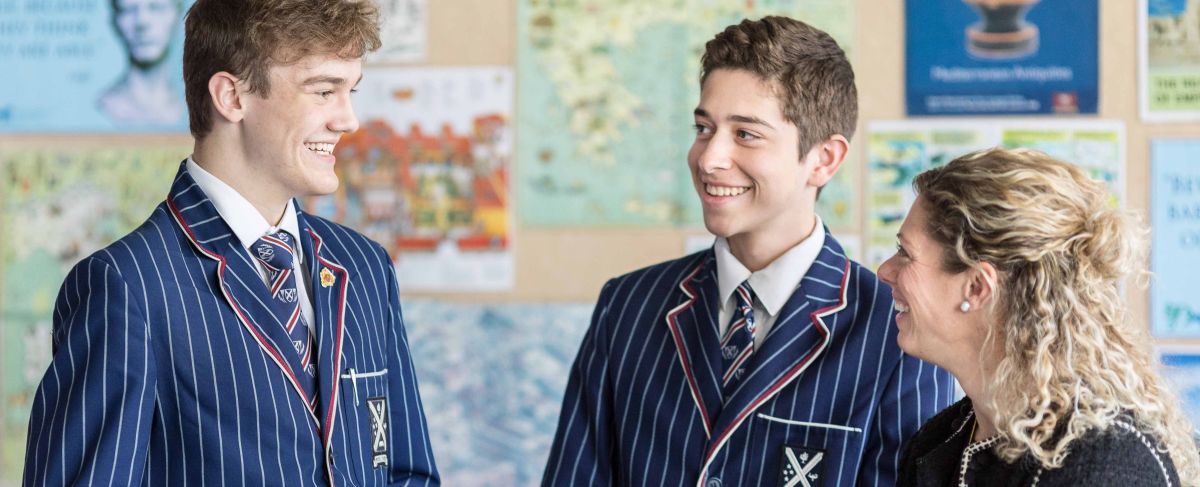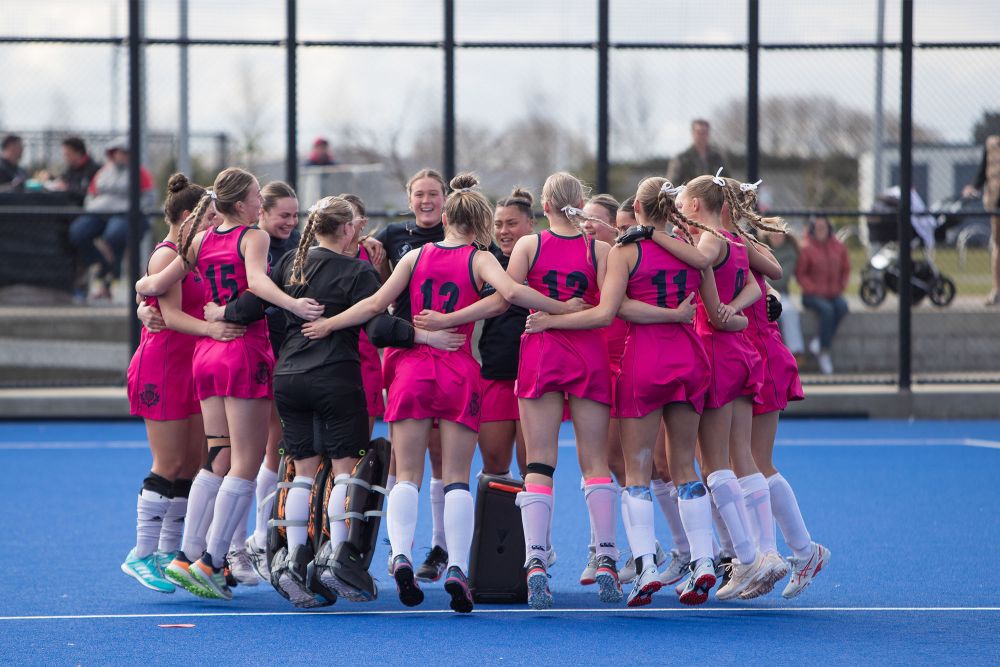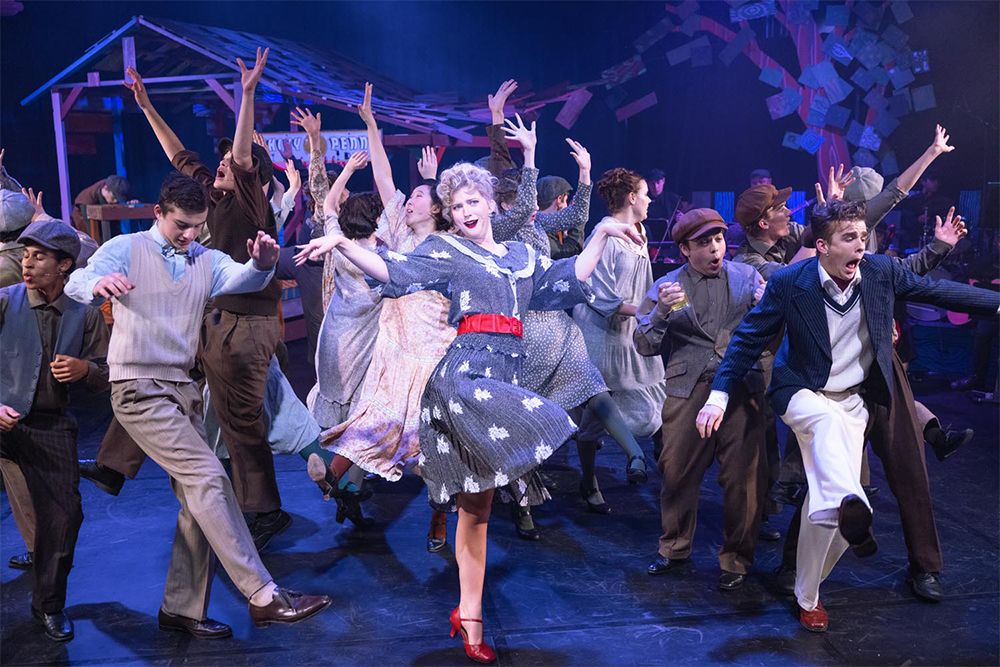Learning at StAC
Te Ako ki StAC
Learning at St Andrew’s College is about teachers and students learning together. It’s about students knowing not just how to improve their knowledge and understanding, but also how to be more effective learners. We focus on quality teaching and learning which equips students with knowledge and skills for life.
"If we want our learners to be engaged, active, and collaborative in their learning, they need to embrace key competencies that equip them for the future."
David Bevin Head of Teaching and Learning (Secondary)

Learning contexts
Our learning contexts ensure that every student grows and develops through academic, sporting, cultural, social, service and spiritual learning and experiences. Our belief is that through this holistic approach, young people will develop character, discover their own identity and passions, and at the same time learn to appreciate the perspectives of and differences in others.

Independent and interdependent learners
At StAC, we build independent and interdependent students who have the qualities needed for a changing world. We want our learners to have knowledge and skills, know how to apply the knowledge and, just as importantly, how to learn. How (what strategies to use and when) is just as important as 'the what'.

Key competencies
Key competencies, which are managing self, thinking, using language, symbols, and texts, relating to others, and participating and contributing, are all foundations to learning at and beyond school. We provide a broad curriculum that caters for a diverse range of student needs and engaging learning experiences that are connected to a wider community make learning authentic.
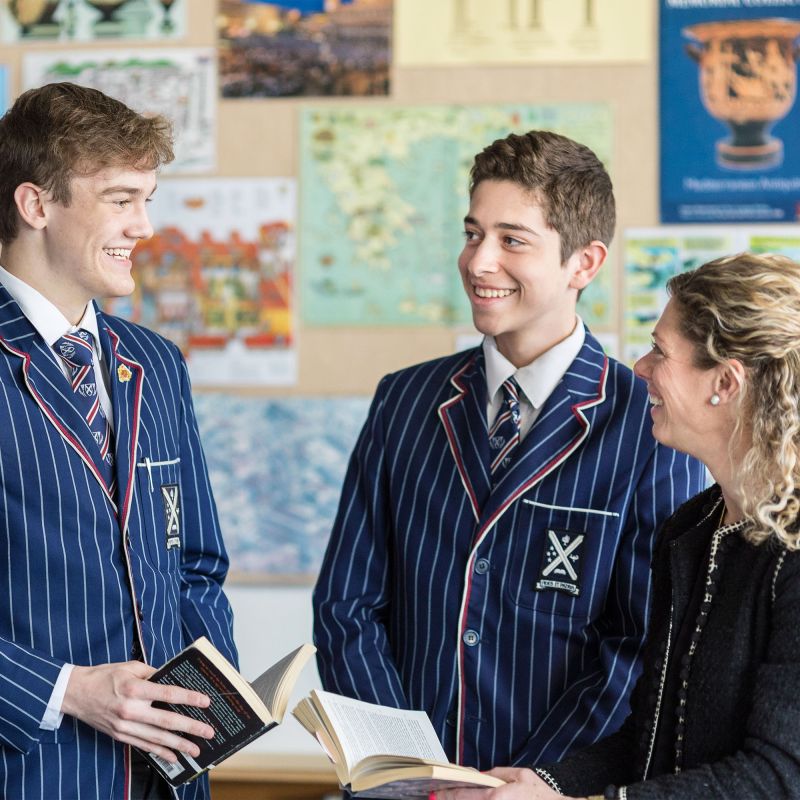
Learning objectives
Our aim is for students to understand what it means to be an effective learner. We want them to be independent, life-long learners. We want them to develop into adults who are equipped with the skills and knowledge to navigate their future with confidence. We want them to flourish.

Inspiring teachers
Our teachers understand that learning is cognitive, emotional, and social. Informed by scientific research, they work to inspire students through a range of experiences. Passionate and skilled, they develop students’ capacity to self-manage, and foster creativity and critical thinking. As lifelong learners themselves, they work to enhance their own practice to meet diverse learner needs.
Meet some of our inspiring teachers

Matt Parr
Director of Boarding
The Boarding Advantage is the ability to teach more than just a subject. It’s the ability to teach life skills, socialisation, interpersonal skills, and communication. Director of Boarding, Matt Parr, discusses our boarding community, connections with students and staff, and the benefits of being a boarder at St Andrew’s College.

Kerry Larby
Head of Well-being
At St Andrew’s College, we believe building character is just as important as developing intellect. Head of Well-being, Kerry Larby, discusses how students at St Andrew’s are supported to flourish, be who they are, and feel a sense of purpose and belonging, in a safe, engaging learning environment.
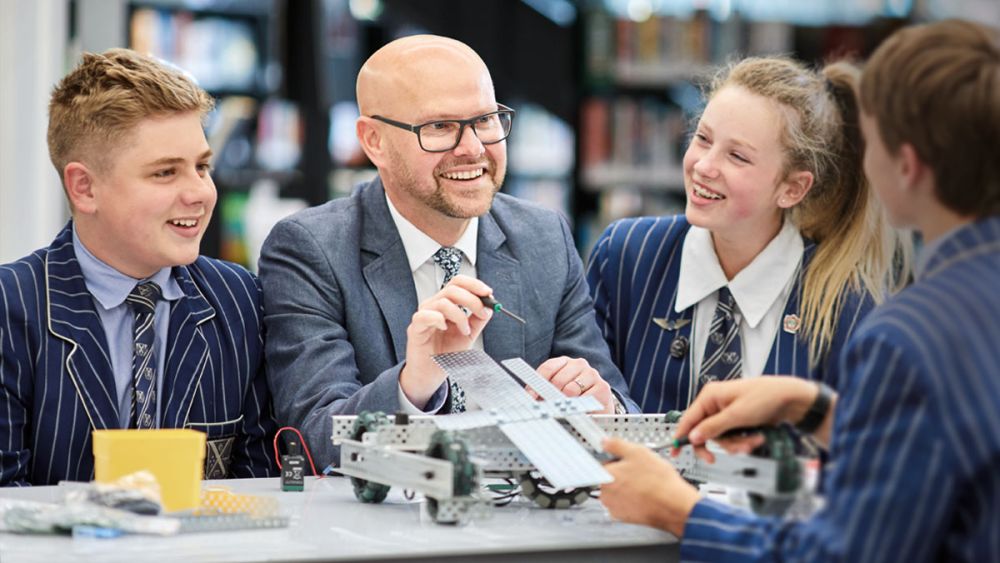
Wilj Dekkers
E-Learning and Innovation Teacher
In a world where technology continues to be a force for change, students at St Andrew’s College are being prepared to control and create future technology, rather than simply being users of it.E-Learning and Innovation Teacher, Wilj Dekkers, discusses the ways in which students are learning to collaborate, share ideas, and work in teams, to create exciting digital products.

Helaina Coote
Assistant Principal of Secondary School (Academic)
Assistant Principal of Secondary School, Helaina Coote, explains how St Andrew’s College is harnessing the increasing body of research into what makes teaching and learning effective. With a diverse curriculum and programmes, and excellent support systems in place, students at St Andrew’s are able to maximise their learning potential, while maintaining a sense of belonging and purpose.

Duncan Ferguson
Head of Music
The Music Department at St Andrew’s College supports the interests of all young musicians, with all genres equally respected and resourced. Head of Music, Duncan Ferguson, discusses how individual programmes, state-of-the-art music suites and recording studio, and the use of exciting technologies and innovative teaching programmes at St Andrew’s, helps students to reach their full potential.

Rev. Paul Morrow
College Chaplain
We want our students to leave the College open minded, free thinking, and consider diverse views. College Chaplain, Rev. Paul Morrow, discusses how St Andrew’s College’s Presbyterian Christian heritage, our values of truth, excellence, faith, creativity and inclusivity, our pastoral care and our community service opportunities, all support our students to develop an understanding and care for their community, and the greater world around them.
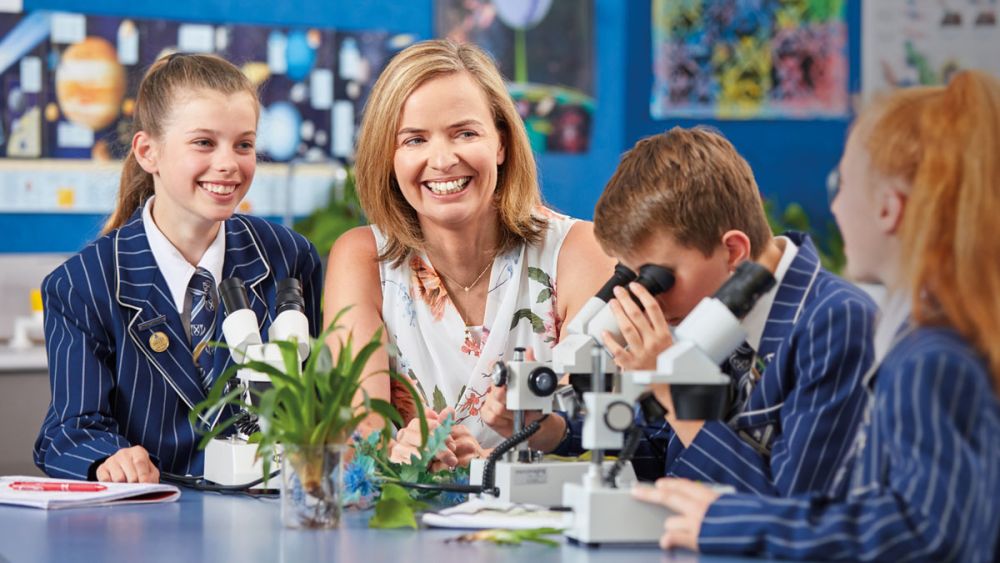
Kelly McBride
Head of Learning Enrichment (Preparatory School)
Learning Enrichment is a key part of the programme in the St Andrew’s College Preparatory School, which provides students with opportunities outside the normal curriculum to find their creative talents and passions. Head of Learning Enrichment, Kelly McBride, discusses how students are encouraged and supported to give new things a try, in a fun environment where they feel confident, secure and happy.
Reaching their potential
We have a ‘no one left behind’ policy at St Andrew’s College, which means every student is recognised as an individual and deserves the best possible educational experience we can provide. It is our job to make sure this happens for your child. We will be with them on every step of their learning journey, with our Pastoral, Well-being and Learning teams working in partnership to support them to reach their goals and unique potential.
Learning Support
The vision of our Learning Support team is to accelerate and support the learning of students experiencing challenges with their studies. Students will be supported in a safe, caring and non-judgemental environment. Simultaneously we foster independence so that no child is entirely reliant on the support provided. Our staff are aware that a culture of ‘learned helplessness’ is not advantageous to students in the long term. Our aim is to develop learners who are resilient and who embrace challenges in their learning journey.
Throughout the College, our Learning Support programme is run by highly qualified teachers whose fields of expertise include special education needs, thinking and learning extension programmes, and student counselling. Our staff aim to build self-esteem and confidence and support students to be independent and resilient learners.
In the Preparatory School, the programmes offered build self-esteem and address delayed learning. We have a full-time reading specialist and several teacher aides, and offer support in subjects such as reading, mathematics, spelling and writing. In the Secondary School, reading and language support is offered for students experiencing challenges and study support is available to senior students.
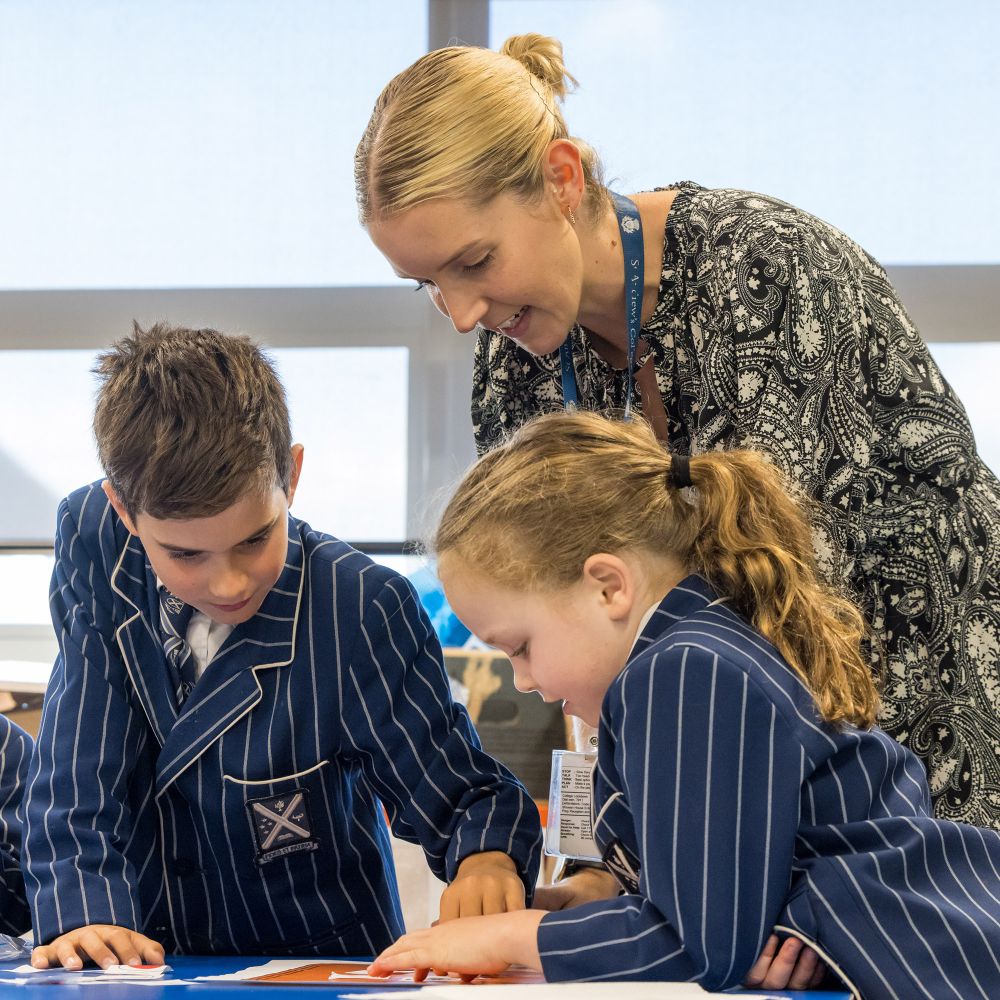
Accelerated Learning Programme
St Andrew’s understands that students with learning delays must have their learning accelerated. We use the 'Morningside Model of Generative Instruction', an evidence-based programme of learning.
Originating in the United States, the 'Morningside Model’ develops students’ mastery of the fundamentals in mathematics, writing and reading. Click here for further information about the Morningside Programme.

Gifted and Talented Students
Gifted and talented students at St Andrew’s College demonstrate, or are capable of, exceptional ability in one or more fields of human understanding or endeavour when compared with others of a similar age, culture, or experience.
It has long been accepted that gifted and talented students need extra support to reach their full academic, emotional, physical and social potential.
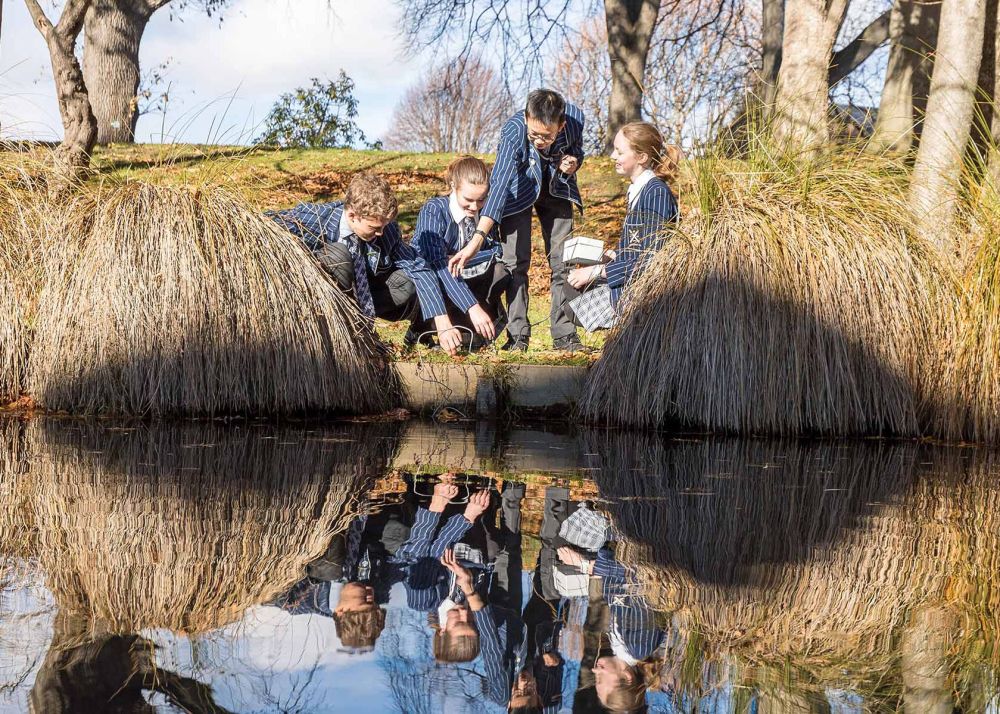
Academic Extension and Enrichment (ACEE) programme
At St Andrew’s College, we have a well-established Academic Extension and Enrichment (ACEE) programme. The programme recognises both performance and potential and recognises that a student’s gifts and talents will emerge at times and in circumstances which are unique to that student. There is an important distinction to be made between academic ‘acceleration’ and ‘extension’.
Learning with Technology
We prioritise future readiness and recognise the essential skills students need to thrive in an unpredictable world. Our philosophy centres around confidence, creativity, and critical thinking.
To equip our staff and students for the rapid digital transformation, we foster agility, flexibility, and innovation. Our Innovation and Information Centre empowers students not only to use technology fluently but also to create digital innovations and inventions.
Within our purpose-built centre, students can access cutting-edge fabrication equipment, including 3D printers and laser cutters. They engage in coding applications, crafting both simple and complex programs, designing games, and automating processes. Additionally, our active robotics teams span across the Preparatory and Secondary Schools, while external mentors bolster our Digital Technology programmes.

Cybersafety
At St Andrew’s College, we provide a safe and positive learning environment for our students, which promotes cybersafety and a learning and social environment free from unnecessary distractions.
Digital technology has opened up a world of possibilities for our children. At the same time, it has multiplied potential risks. Our goal is to protect every student from exposure to online threats – from inappropriate content to cyberbullying.
As students progress through the College, they are provided with different recourses to gain awareness of potential risks and corresponding risk mitigation strategies. We also provide parental resources and information evenings with guest speakers to better equip our parents/caregivers with the tools needed to support their child in this area.
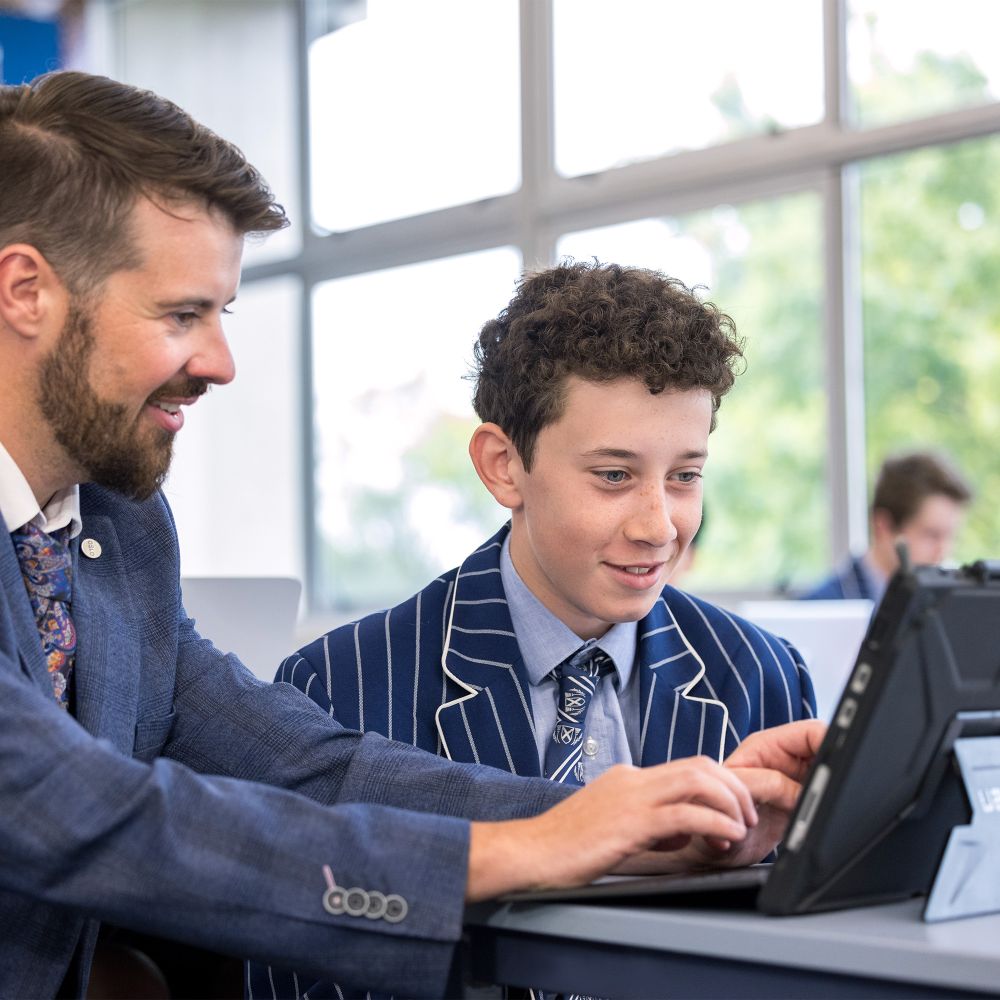
StAC Unplugged
StAC Unplugged, first introduced by the College in 2020, aims to foster purposeful social interactions and interpersonal relationships by limiting mobile phone use between 8.30am and 3.20pm, except for educational purposes under teacher supervision. This minimises distractions and inappropriate use, and reduces the risks associated with excessive social media use. In 2024 the phone ban mandate for all New Zealand state and state-integrated schools came into effect, with St Andrew's College continuing with the StAC Unplugged initiative.
StAC Unplugged promotes a safe, positive learning environment, emphasising cybersafety and guiding students in responsible technology use both within and beyond the school gates.
